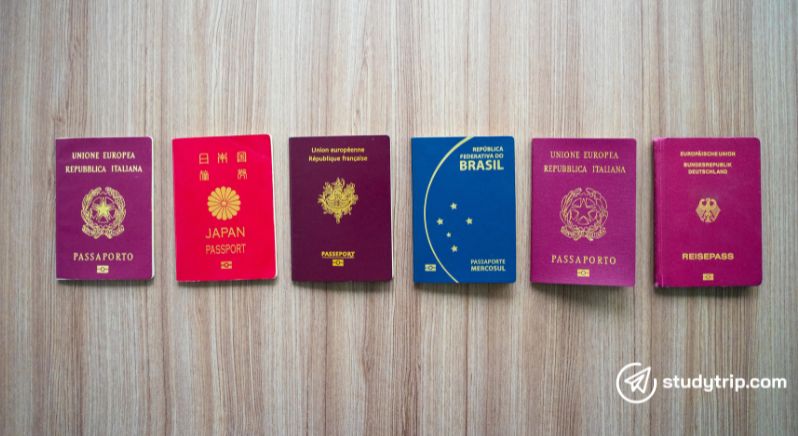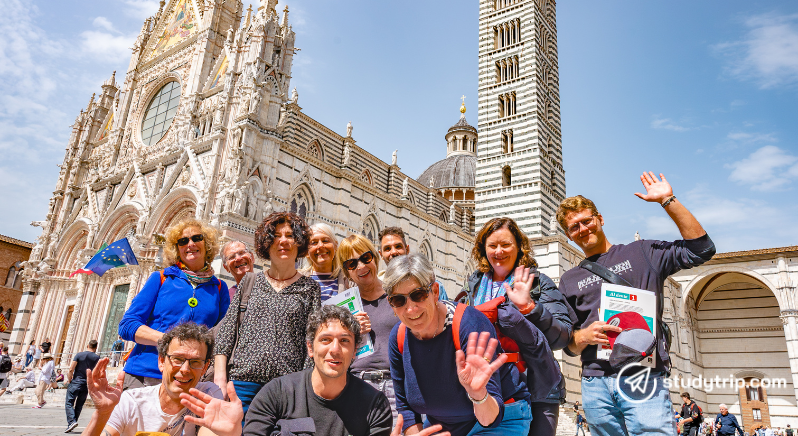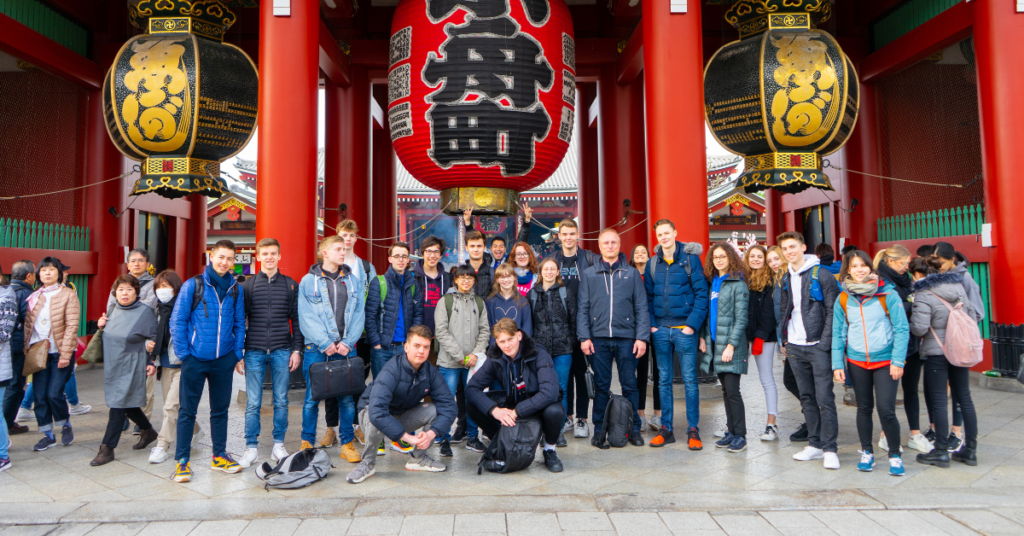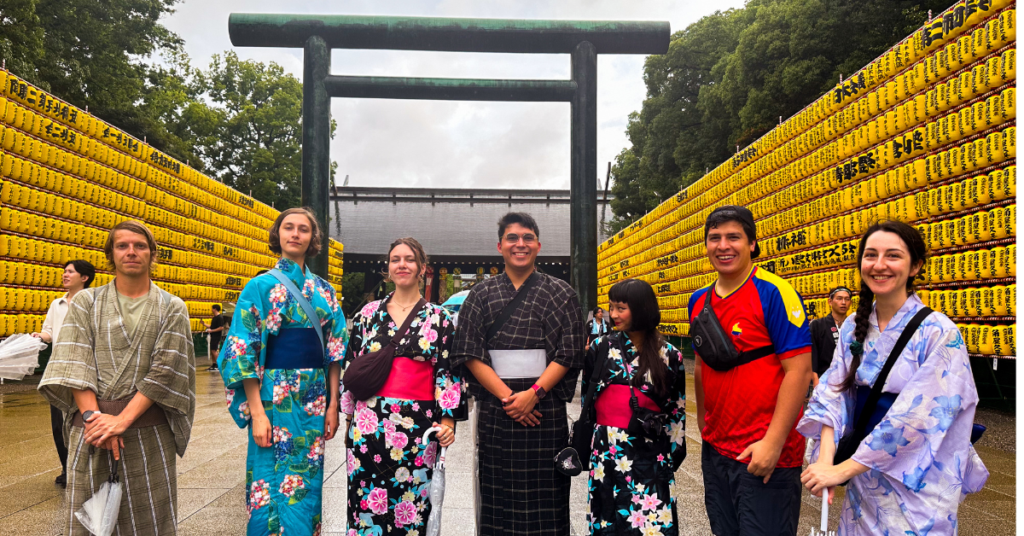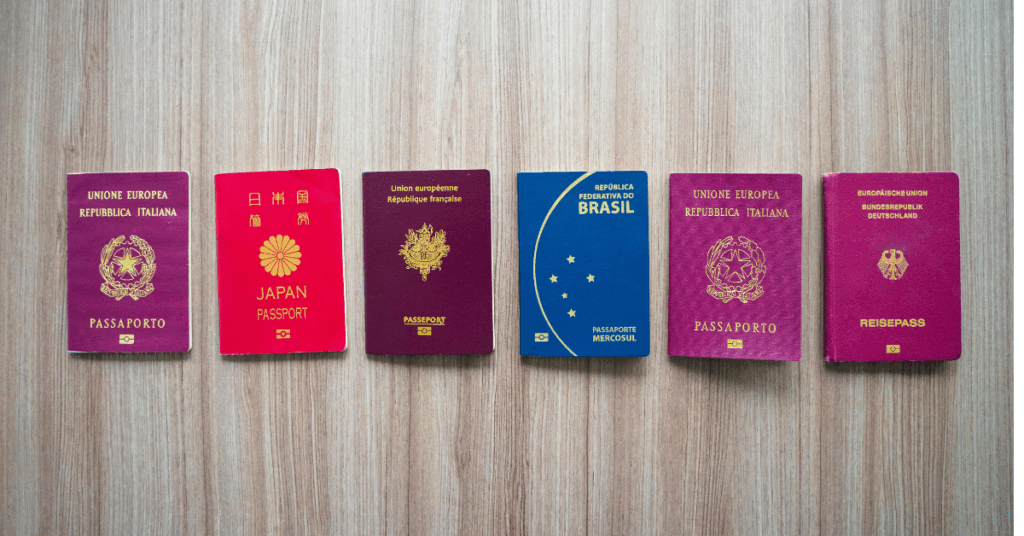What Does It Mean to Be a Global Citizen?
In today’s interconnected world, being a global citizen goes beyond having a passport or the ability to speak a second language. It means possessing cultural awareness, empathy, adaptability, and a sense of responsibility toward the global community. For educators, student study abroad opportunities are a practical and powerful way to help students develop these qualities early.
Study trips—especially those that combine language learning with cultural immersion—give students the chance to explore life beyond their familiar environments, shaping them into global citizens and open-minded thinkers that universities and employers value, ultimately setting them up for long-term success. Read on to learn more about how these experiences impact your students and how you can facilitate a life-changing experience for them.
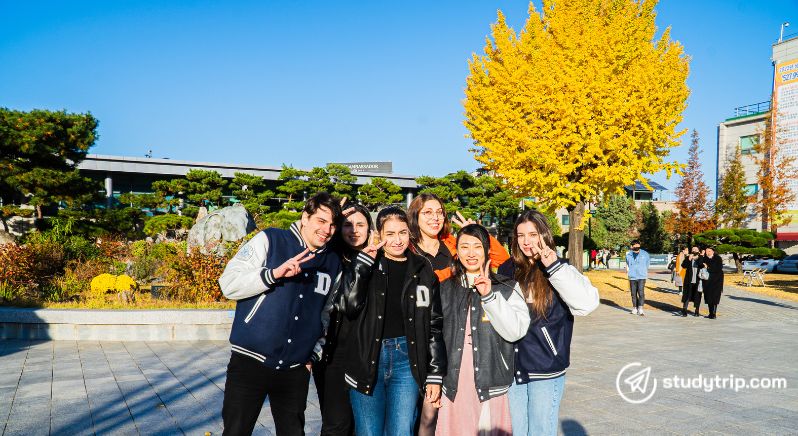
Study Abroad Opportunities Impact on Personal Growth
One of the most profound benefits of student study abroad opportunities is the personal transformation that often occurs. Away from their usual support systems, students learn to problem-solve, manage uncertainty, and take initiative. These experiences build maturity and independence, often in just a few short weeks.
Whether navigating public transport in Tokyo or ordering tapas at a small local restaurant in Barcelona, small everyday tasks become meaningful milestones. This kind of personal growth is difficult to replicate in a traditional classroom setting.
“This was my first time abroad by myself and really opened up my world. The tour guide was especially helpful as to not just helping me get on the trains and back to my host family, but also gave me good recommendations on what to see in Japan. I would definitely do this kind of experience again!”
-Wojciech, Scotland
Building Student Confidence
Confidence is one of the most commonly reported outcomes of participation in a study trip—and for good reason. When students are placed in new environments where they must rely on their own communication, adaptability, and decision-making, they begin to see themselves as capable and resourceful individuals.
Student study abroad opportunities offer structured but challenging experiences that push students just outside their comfort zones in a safe and supportive setting. Whether it’s navigating a conversation entirely in Italian with a shopkeeper in Italy, giving a short self-introduction in Korean during a class presentation in Korea, or managing daily life with a host family in France, these moments require students to step up, be brave, and trust their own abilities. Each of these experiences—small victories in unfamiliar settings—builds lasting confidence that extends far beyond the trip itself.
Staying with a local host family, for example, can be both exciting and intimidating at first. But as students adjust to new routines, overcome language barriers, and form personal connections across cultures, they gain not only language skills but also a deep sense of independence and self-assurance.
The confidence students gain while studying abroad stays with them long after the trip ends. It supports their academic progress, strengthens personal growth, and prepares them for success at university, in future careers, and in leadership roles across a range of environments.
Exposure to New Cultures
Experiencing a new culture first-hand is one of the most powerful aspects of any study trip. It goes far beyond sightseeing or classroom lessons—it’s about engaging with people, customs, and everyday life in a way that fosters true cultural understanding. This kind of deep exposure builds the intercultural competence students need to navigate an increasingly global world, both academically and professionally.
In our programs across Japan, Korea, Spain, France, and Italy, students don’t just learn about another culture, they live it. They might join local students for language exchange at a café in Paris, explore community life through neighborhood markets in Barcelona, or take part in a local festival with their host family in Tokyo.
These immersive experiences allow students to step into someone else’s world, to notice differences, ask thoughtful questions, and reflect on their own cultural assumptions. Learning how to show respect in a different context, adapt to unfamiliar social norms, or appreciate subtle customs, like when to say “vous” or “tu” in French, or how to greet someone in Korean, helps develop empathy, flexibility, and a more nuanced worldview.
Student study abroad opportunities like these create future leaders who are not only curious and informed, but also capable of connecting across cultures, an essential skill in today’s global workforce.
Study Abroad Opportunities Impact on University Aspirations
For many students, participating in a study trip becomes a turning point in their academic path. The confidence and perspective gained from such experiences often inspire new academic interests or even influence their choice of university programs or plans post graduation. For example, some of our students come back to study the language long-term on a student visa after their study trip experience.
University admissions teams increasingly recognize the value of student study abroad opportunities, especially when students can articulate how the experience shaped their ambitions. These experiences demonstrate initiative, cultural awareness, and a genuine interest in global engagement.
What Universities Are Looking For in Modern Applicants
Top universities today are not just evaluating test scores, they’re looking for students who can demonstrate global competency, show independence, and demonstrate initiative. Study abroad experiences provide concrete evidence of these traits.
When students participate in thoughtfully structured programs that combine language instruction with cultural activities, they return with stories, insights, and reflections that enrich their personal statements and application essays.
Study Abroad Opportunities Impact on Career Aspirations
Just as universities seek global citizens, so do employers. In a competitive job market, international experience, especially gained at a young age, can set applicants apart.
Students who take part in student study abroad opportunities gain soft skills like adaptability, communication, and problem-solving, all of which are prized in the modern workplace. More importantly, they begin to see themselves as part of a global professional landscape.
Real-World Application: Resumes, Interviews, and the Workplace
A short-term study trip can have a long-term impact, especially when students are taught how to reflect on it and communicate its value. Learning to express what they gained from their experiences, whether in a university application, a job interview, or a professional setting, gives students a clear and lasting advantage.
Through student study abroad opportunities, they don’t just accumulate memories, they also build stories of growth, initiative, and adaptability that resonate in competitive academic and professional environments.
Resume Examples:
- “Completed a 3-week intensive Japanese language and culture program in Tokyo; developed cross-cultural communication skills and independence.”
- “While studying in Italy, I was placed with a host family that didn’t speak English, so I had to rely on my Italian to communicate every day. At first, it was intimidating, but by the end of the program, I was confident holding full conversations. That experience taught me how to navigate uncertainty and build relationships across language barriers—skills I now use in team settings.”
- “While studying in Korea, I had to use Korean daily to navigate shops, order meals, and ask for directions. At first, it was overwhelming, but gradually I gained the confidence to communicate effectively even when I didn’t know every word. It taught me how to stay calm under pressure and communicate across language and cultural differences—skills that I now bring into group discussions and customer-facing roles.”
Interview & Application Answers:
- “In France, I had to navigate living with a host family where I didn’t speak the language fluently. It taught me how to listen actively, adapt quickly, and build relationships across cultures—all skills I know are valuable in this role.”
- “While studying in Spain, I had to present on local cultural customs during a class project, even though public speaking wasn’t my strength. Preparing and delivering the presentation in Spanish challenged me, but it helped me build confidence in both my language skills and my ability to speak up in unfamiliar environments—something I now feel more prepared to do in academic and professional settings.”
- “Attending language classes in Korea and interacting with local students gave me insight into different communication styles, which I now apply when working on diverse teams.”
These experiences help students frame themselves as globally competent, independent thinkers—qualities that stand out to admissions officers, hiring managers, and future collaborators.
By learning to articulate the real-world impact of their student study abroad opportunities, students are empowered to turn transformative travel into meaningful academic and professional momentum.
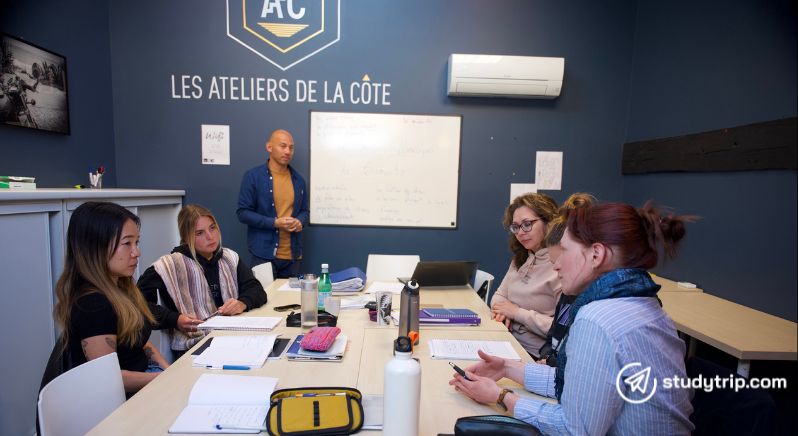
How Can a Study Trip Bring Your Students One Step Closer to Becoming Global Citizens?
A study trip is far more than a break from the classroom—it’s a powerful gateway to personal growth, global understanding, and lifelong success. Whether students spend two weeks immersing themselves in Korean language and culture in Seoul or exploring the rich art and architecture of Florence, every experience profoundly shapes their worldview and prepares them to thrive in an interconnected world.
Our programs are uniquely designed to combine immersive language learning with authentic cultural engagement, ensuring students don’t just observe but truly live the culture. This holistic approach fosters the confidence, empathy, and adaptability that universities and employers increasingly seek in future leaders.
If your school or organisation is ready to explore the benefits of student study abroad opportunities, we’re here to help. Contact us today to discover how our tailored programs can prepare your students to thrive on the global stage.
